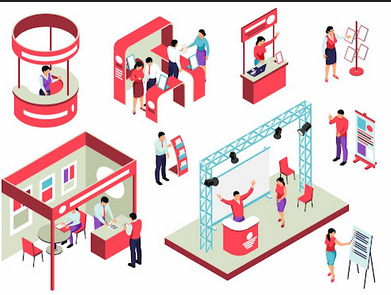By Felicia Nwosu
As we enter 2025, the marketing landscape continues to evolve at an unprecedented pace. Consumer tastes and preferences are constantly shifting, driven by rapid technological advancements and a growing demand for personalized experiences. This presents both exciting opportunities and significant challenges for marketers.
Experiential marketing, with its focus on creating immersive and memorable brand encounters, offers a powerful solution to connect with today’s discerning consumers. However, success in 2025 will hinge on the ability of marketers to adapt to these evolving needs and leverage innovative strategies.
In today’s rapidly evolving marketing landscape, capturing consumer attention requires more than just traditional advertising. Experiential marketing, with its focus on creating immersive and memorable brand encounters, offers a powerful solution to cut through the noise and forge lasting connections with today’s discerning consumers.
Some industry leaders averred that by embracing innovation, leveraging data, and prioritizing customer experience, the Nigerian experiential marketing industry can navigate the complexities of the evolving landscape and continue to drive significant growth for brands in the years to come.
Rotimi Olaniyan, Programme Director at Nottingham Business School, UK, noted that navigating this dynamic landscape requires a nuanced approach. He emphasised the need for continuous innovation.
“We haven’t thrown sufficient innovation at this space compared to what I’ve seen in other environments,” he asserts. “There’s a lack of creativity and a tendency to rely on tried-and-tested formulas.”
Furthermore, Olaniyan highlights the crucial need for robust measurement systems. “Clients have sophisticated systems for measuring the effectiveness of traditional media and advertising campaigns, but we don’t see that same level of sophistication in the experiential space. This lack of data hinders the industry’s ability to demonstrate its true value to clients and optimize future campaigns.”
Otis Ojeikhoa, Founder and CEO of Brands Optimal, who is another industry expert, pointed to the high cost of implementing cutting-edge technologies as a major hurdle.
“The cost of deploying technology in experiential marketing is expensive. We are still grappling with basic activations, focusing on activities like singing and dancing, while the use of augmented reality and projection mapping remains largely unexplored due to the high costs involved.”
However, they all agreed that despite these challenges, experiential marketing holds immense potential in Nigeria. Brands can leverage influencer marketing by partnering with relevant influencers to create exclusive events and experiences that reach new audiences and amplify brand reach.
As part of the suggestions made, they urge professionals to also embrace gamification and contests to incentivize customer engagement and drive excitement. Offering exclusive product previews to loyal customers creates a sense of exclusivity and drives pre-launch buzz.
Moreover, brands can utilize virtual and augmented reality to create immersive experiences that simulate real-world interactions with their products or services. Leveraging data and analytics to create personalized experiences that cater to individual customer preferences and interests is also crucial. This could include customized product recommendations, tailored event invitations, and personalized offers





Comment
No comments found.